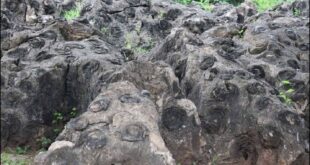- Delhi’s first ‘Haunted Heritage Walk’ to kick off from Malcha Mahal.
- Organized by Delhi Tourism department.
Among the other sites that the walk will cover include:
- Bhooli Bhatiyari ka Mahal,
- Feroze Shah Kotla and
- the Tughlaqabad Fort.
Aim:
- The Tourism department is identifying “haunted” sites in the national capital to conduct heritage walks.
- A detailed plan on the hidden and unexplored historical places in the city is being prepared, he had added.
- Tourism department wants to promote the wonders of the city – its heritage, art and craft, diverse cuisine and culture through these walks.
Malcha Mahal:
- Malcha Mahal is also known as Wilayat Mahal.
- It is a Tughlak era hunting lodge in New Delhi.
- Malcha Mahal was built by Sultan Firoz Shah Tughlaq.
- It came to be known as Wilayat Mahal after the self-proclaimed “Begum Wilayat Mahal” of Awadh.
- She claimed to be a member of the Royal family of Oudh and was reportedly given the place by the Government of India in May 1985.
Bhuli Bhatiyari ka Mahal:
- Bhuli Bhatiyari ka Mahal is a ruined fort cum gateway structure that was originally built as a hunting lodge by Feroz Shah Tughlaq in the 14th century.
- The fort is infamous for its haunted stories and tales of paranormal activity.
- The monument is a protected monument under the Archaeological Survey of India (ASI).
Feroz Shah Kotla:
- Feroz Shah Kotla Fort was built by Sultan Feroz Shah Tughlaq in 1354.
- This fort was built when the ruler decided to shift his capital from Tughlaqabad to Firozabad due to the scarcity of water at the former capital.
- Hence, the fort was built on the banks of the Yamuna river to serve the purpose.
- The entrance of the fort has a gigantic iron gate with the name of the ruler
- One of the interesting features of the fort is that it houses an Ashokan Pillar, which was brought by Feroz Shah from Ambala to Delhi.
- It is 13 m high and bears the inscriptions of Ashoka’s principles.
Tughlaqabad Fort:
Tughluqabad Fort is a ruined fort in Delhi built by Ghiyasuddin Tughluq, the founder of the Tughlaq dynasty.
Tughluqabad is divided into three parts:
- the wider city area with houses built along a rectangular grid between its gates
- the citadel with a tower at its highest point known as Bijai-Mandal and the remains of several halls and a long underground passage
- the adjacent palace area containing the royal residences.
SOURCE: THE HINDU, THE ECONOMIC TIMES, PIB
 Chinmaya IAS Academy – Current Affairs Chinmaya IAS Academy – Current Affairs
Chinmaya IAS Academy – Current Affairs Chinmaya IAS Academy – Current Affairs



